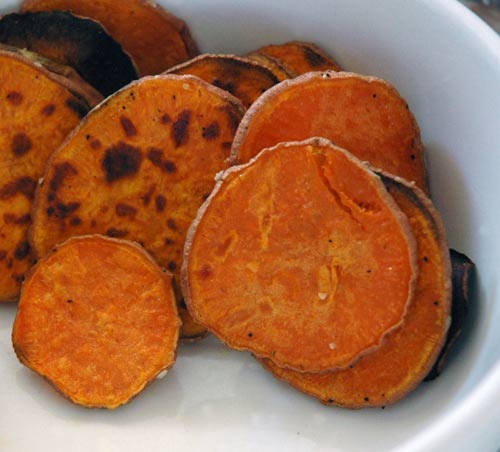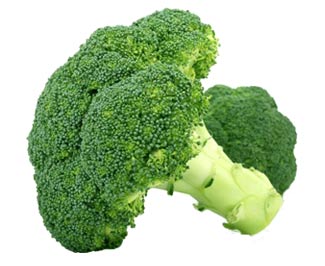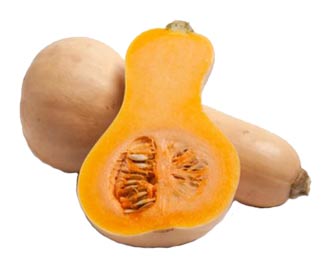
The sweet potato belongs to the Convolvulaceae family and its scientific name is Ipomoea Potatoes.
It is one of the oldest vegetables known to man and is consumed since prehistoric times.
In Portugal, the sweet potato is mostly produced in the southwestern region of Alentejo and on the Vicentina coast. These areas have a moderate climate, sandy soils and are located near the sea where frost is less frequent.
Sweet potatoes are most commonly consumed mashed, fried, baked, boiled and sautéed. For a sweet potato to be in excellent condition, it should show no signs of dehydration, rot or mold. It should also not have a greenish hue.
Sweet potatoes should be stored in a plastic bag in an airy place away from light.
Sweet potatoes go well with oregano and pepper.
Health Benefits
- They are a source of fiber, folic acid, vitamins C and B6, and help eliminate toxins and fluids.
- Sweet potatoes are also rich in potassium, which is essential for normal muscle function and they play a key role in maintaining normal blood pressure.
- Since the sweet potato is rich in vitamin A, it also contributes to the normal functioning of the immune system and to maintaining good vision. It fights obesity and regulates blood pressure.
- The sweet potato promotes the increase of muscle mass, because it provides the energy needed for sports training.
- Helps control diabetes, because it has a low glycemic index;
- Improves bowel function, because it is rich in fiber.
Origin: Portugal
Share this with your friends:
























